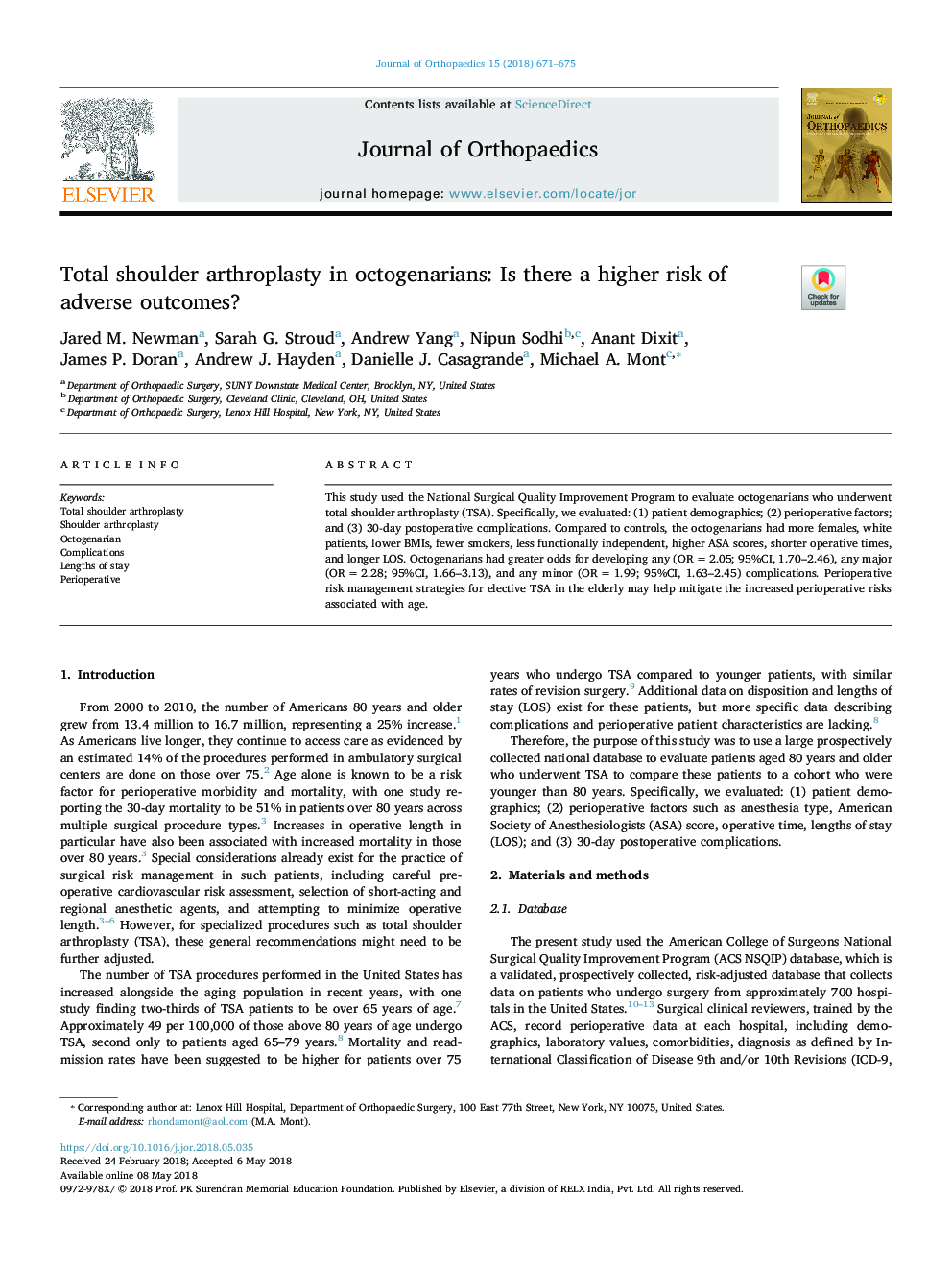| Article ID | Journal | Published Year | Pages | File Type |
|---|---|---|---|---|
| 8720320 | Journal of Orthopaedics | 2018 | 5 Pages |
Abstract
This study used the National Surgical Quality Improvement Program to evaluate octogenarians who underwent total shoulder arthroplasty (TSA). Specifically, we evaluated: (1) patient demographics; (2) perioperative factors; and (3) 30-day postoperative complications. Compared to controls, the octogenarians had more females, white patients, lower BMIs, fewer smokers, less functionally independent, higher ASA scores, shorter operative times, and longer LOS. Octogenarians had greater odds for developing any (ORâ¯=â¯2.05; 95%CI, 1.70-2.46), any major (ORâ¯=â¯2.28; 95%CI, 1.66-3.13), and any minor (ORâ¯=â¯1.99; 95%CI, 1.63-2.45) complications. Perioperative risk management strategies for elective TSA in the elderly may help mitigate the increased perioperative risks associated with age.
Keywords
Related Topics
Health Sciences
Medicine and Dentistry
Emergency Medicine
Authors
Jared M. Newman, Sarah G. Stroud, Andrew Yang, Nipun Sodhi, Anant Dixit, James P. Doran, Andrew J. Hayden, Danielle J. Casagrande, Michael A. Mont,
